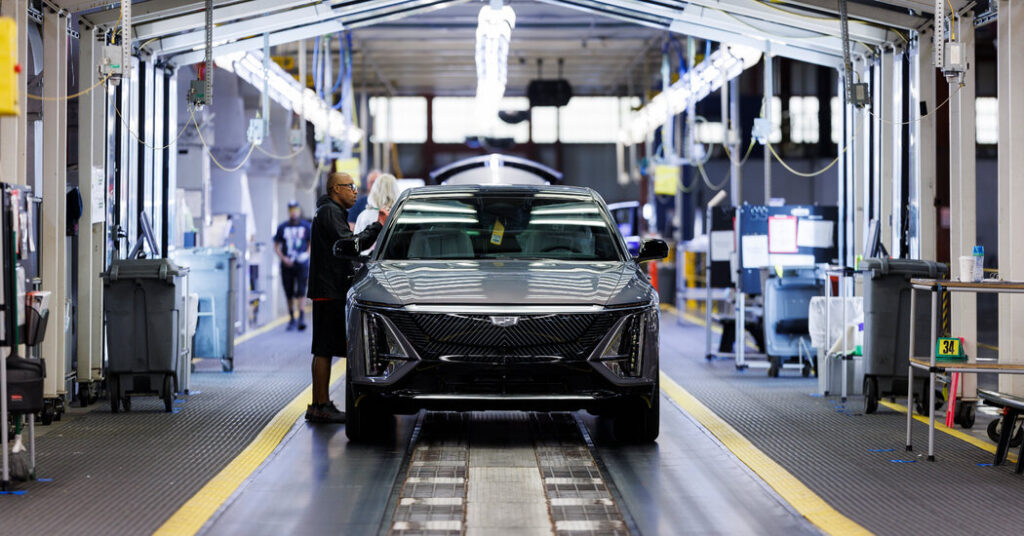The auto industry witnessed a different kind of March madness last month as buyers flocked to dealerships to lock in deals before President Trump’s auto tariffs lift prices by thousands of dollars, several carmakers said.
“This past weekend was by far the best weekend I’ve seen in a very long time,” Randy Parker, the chief executive of Hyundai Motor North America, told reporters on Tuesday. The company reported a 13 percent increase in March sales on Monday compared with a year earlier.
Ford Motor said Monday its March sales at dealerships rose 19 percent. However, Ford’s sales during the overall quarter slipped 1 percent, to about 500,000 vehicles, because of a decline in sales to fleet customers, the company said.
General Motors did not provide a separate figure for March, but reported that sales in the first quarter rose 17 percent from a year earlier, to 693,000 vehicles.
Mr. Trump said last week that he would impose 25 percent tariffs on imported vehicles, effective Thursday. The tariffs will be extended to imported auto parts on May 3. Many cars made in U.S. factories contain parts made abroad, frequently exceeding 50 percent of the vehicle’s value. Analysts estimate that carmakers will have to increase prices of some models by more than $10,000 to compensate for the new levies.
G.M., Ford and Hyundai reported increases in sales of electric vehicles and hybrids. G.M. said its sales of vehicles powered solely by batteries almost doubled, to 32,000 cars, as the electric version of the Equinox sport utility vehicle became widely available. With a starting price of about $35,000, the Equinox is one of the most affordable electric vehicles available in the United States.
Ford said that sales of hybrid vehicles rose 33 percent and that sales of electric vehicles like the Mustang Mach-E rose 12 percent. Sales of cars with internal combustion engines during the quarter fell 5 percent.
Hyundai said that sales of hybrids soared 68 percent while sales of pure electric vehicles rose 3 percent.
Mr. Parker of Hyundai said he could not estimate what impact tariffs would have on the company’s prices. Hyundai and its sister company, Kia, have factories in Georgia and Alabama but they import substantial numbers of vehicles from South Korea.
“We haven’t made any firm decisions yet,” Mr. Parker said. But he added, “Don’t wait to buy tomorrow what you can buy today.”
https://www.nytimes.com/2025/04/01/business/auto-sales-trump-tariffs.html


